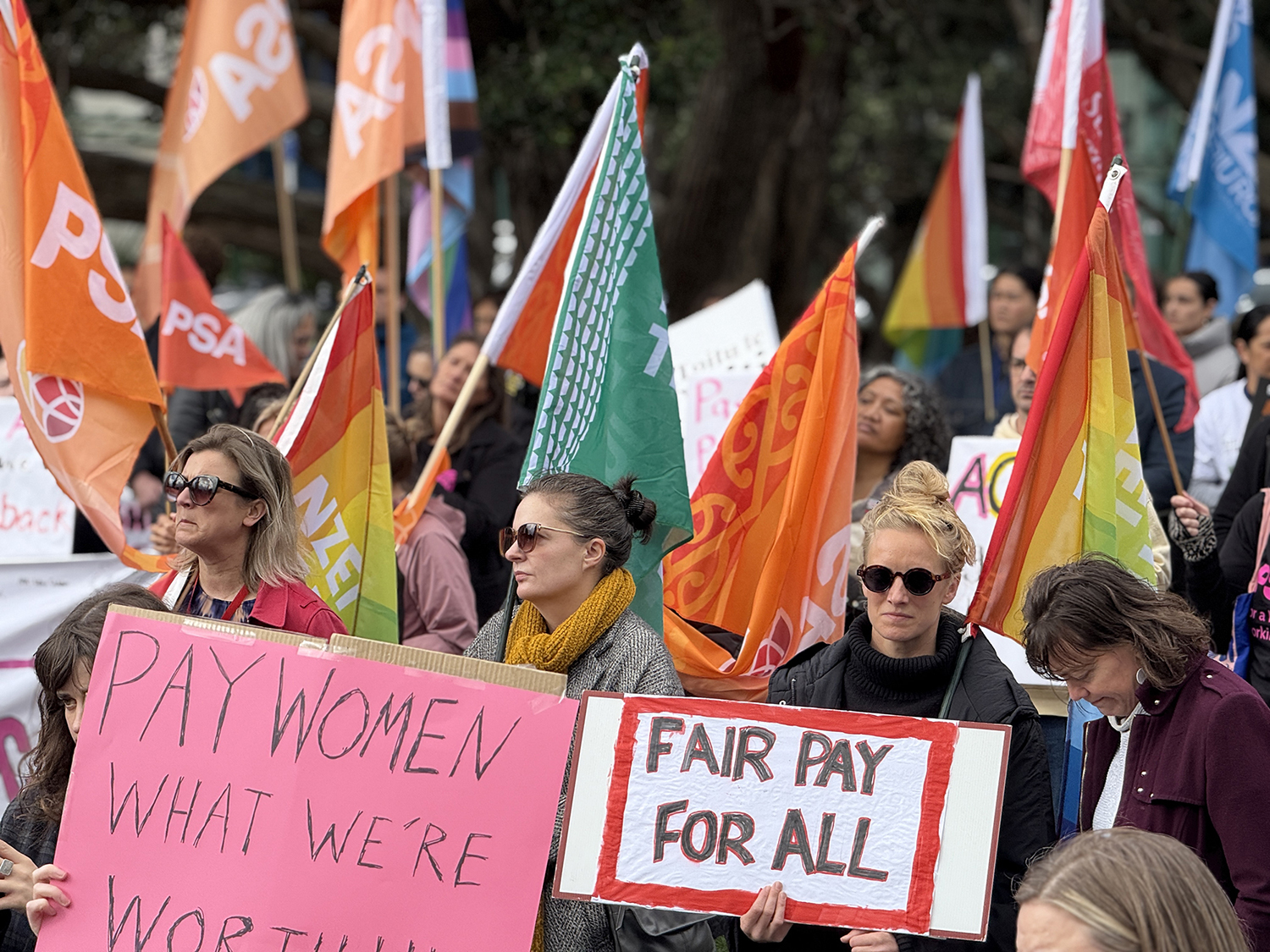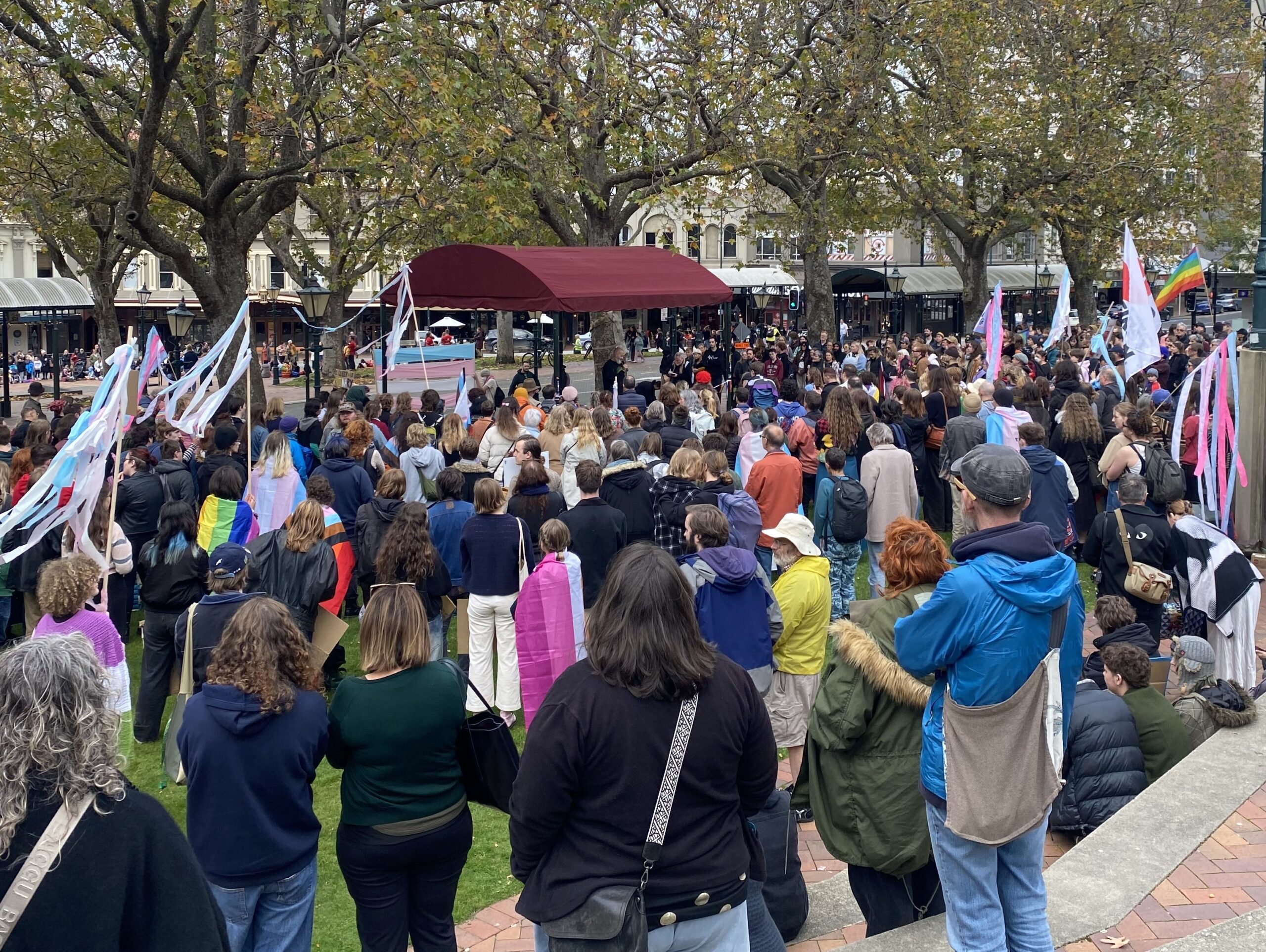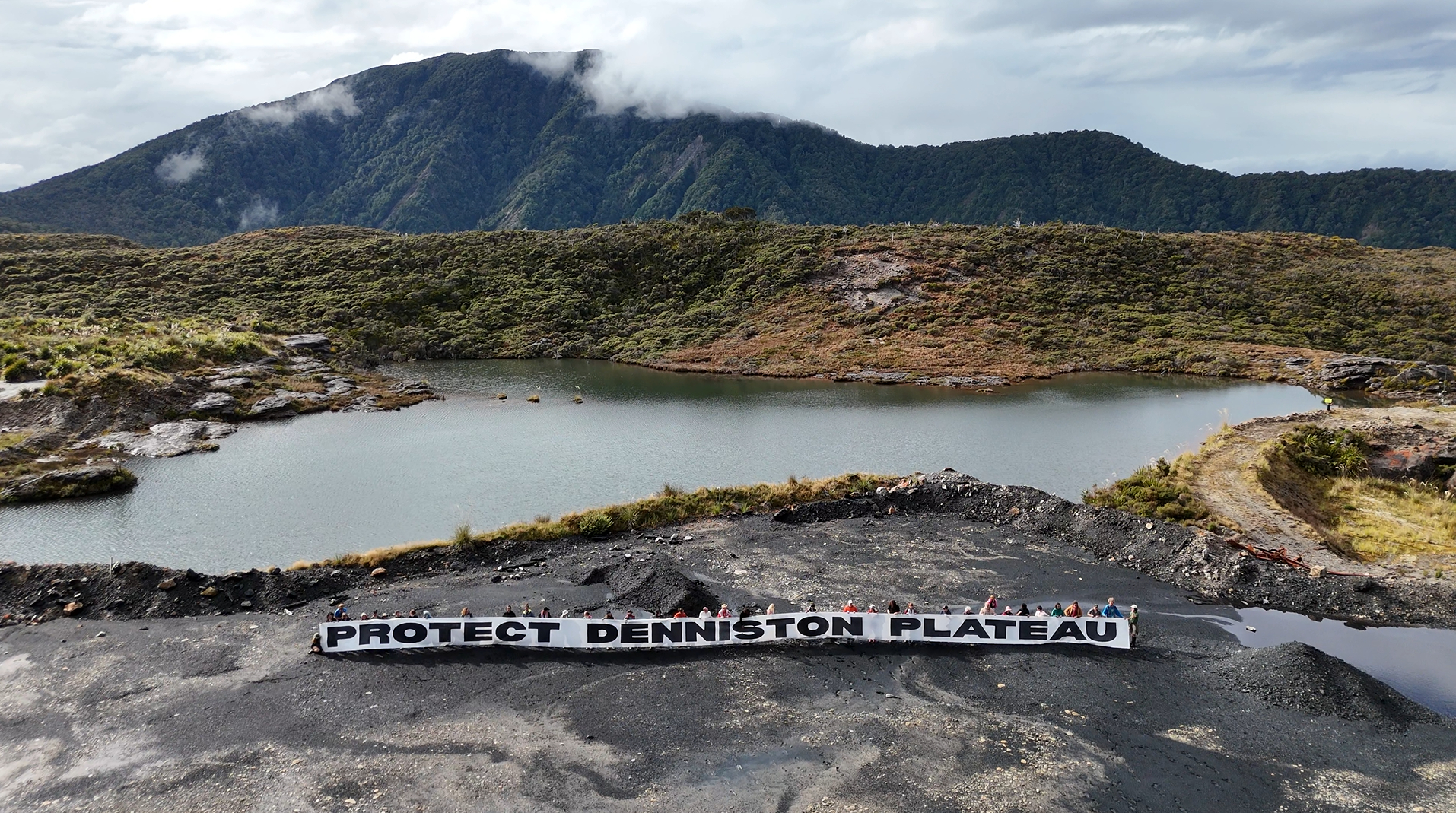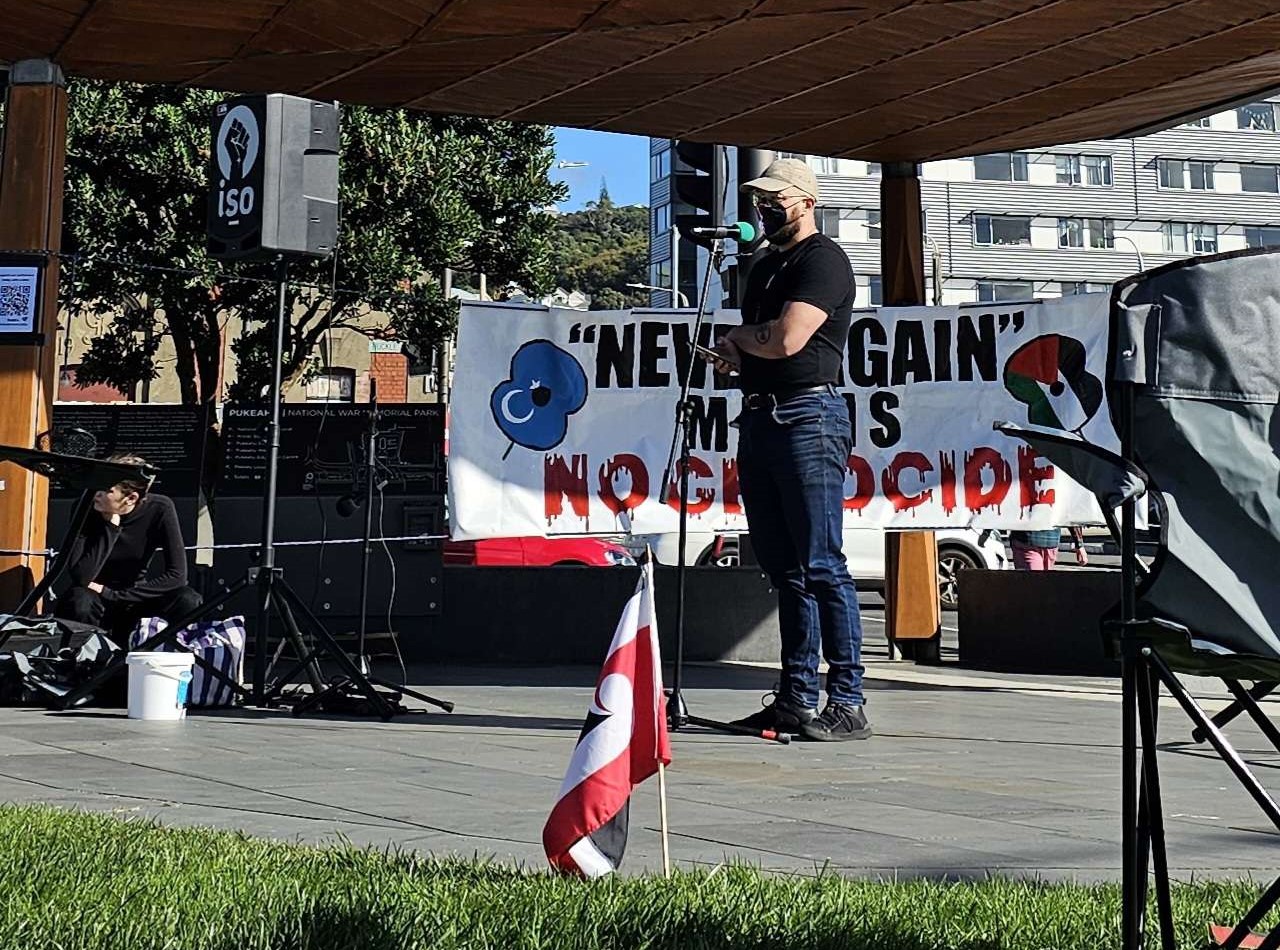Brandon Johnstone gave this talk to a national meeting of the International Socialists discussing our organisation’s response to the COVID-19 emergency on April 3.
In February 2020, before the economic and societal impacts of COVID-19 were truly felt in New Zealand, United Nations Special Rapporteur on housing Leilani Farha referred to the housing situation in New Zealand as a “significant human rights crisis”. She called for a freeze on New Zealand rental prices and the introduction of a Capital Gains Tax as stopgap measures in working towards eliminating the “violations of the right to housing, health, security, and life.”
She asserted what the majority of renters already acknowledge: “At the root of the crisis is a speculative housing market that has been supported by successive governments who have promoted homeownership as an investment, while until recently discontinuing the provision of social housing and providing inadequate tenant protection.“
That’s the core of the ongoing housing crisis right there: housing is a market, where the wealthy purchase the promise of future income streams (that is, rent) and potentially also capital gains. In its simplest form, the economic relationship between the landlord and the renter is parasitic: the renter pays a portion of their income to the landlord, either paying the landlord’s mortgage (the landlord here is essentially a middleman for the bank), or simply as profit in the landlords’ hands.
Common arguments that this is justifiable include costs incurred by the owner such as rates, insurance, upkeep costs and income stability. In response to the first three points: insurance, rates and upkeep are part and parcel of ownership, not a cost incurred due to tenancy. As for income, landlords seem to consider the houses they own as an investment when ownership is profitable, but a job when it is not. Landlording is not a job. It is socially acceptable siphoning of income from the non-owning class to the ownership class. In an economic and health crisis, why should those who don’t own a house cover the income losses of those who do own a house? Landlords justify their economic ‘necessity’ by claiming that paying a deposit on a house is doing the renter a favour. This overlooks the reality that housing prices are so increasingly high because of the investment nature of housing that these owners trade in.
To be clear: being a renter is more expensive than being a landlord. Being poor is proportionately more expensive than being wealthy.
Housing should be an inalienable human right, not an investment to enrich those with the funds to procure it. Generations of people toiled to create more productive industry, to make construction more efficient, and the result of this has not been a comfortably housed populace but rather an increasingly wealthy ownership class, siphoning rents at the expense of the poorest, most vulnerable in society.
The position of renters and all workers has become much more precarious in the last month. The government’s ‘stimulus package’ has effectively offered temporary stability to a large portion of the working class. This package is very uneven in its impacts, with the already marginalised being further left behind, and expectations from the government that existing welfare programmes will act as the final safety net for anyone struggling.
I say “already marginalised”, in that in New Zealand, we see plainly that intergenerational poverty began with the advent of capitalist colonialism. Ownership of land is one of the largest determinants of wealth in our country, and this was overwhelmingly stripped from Māori by colonisers, leading to entrenched inter-generational poverty. In becoming alienated from the whenua, Māori and Pasifika people are some of the most disadvantaged in economic, incarceration and health statistics. Beyond this, we know that Māori and Pasifika, as well as our queer and trans whanau, are over-represented in homelessness statistics. This economic, and therefore housing, disadvantage is inter-connected with these other structural and institutional disadvantages and does not exist in a vacuum.
Rainbow umbrella groups are speaking out about the disproportionate impact this is having on LGBT youth in particular: being stuck at home without private support networks, being forced to perform as a gender they do not identify with, at the expense of their mental wellbeing, and a wide array of other issues that our the housing ‘market’ and capitalism in general is not set up to handle.
The government is putting billions of dollars in stimulus into the economy. Despite this being essentially filtered through businesses, there is no denying that it has resulted in necessary support for a lot of workers. But the longer this crisis goes on, the more money will need to be pumped into the economy to ensure that workers can continue buying food, continue paying rent, all while more and more businesses shut their doors permanently. Except, those that are profiting absurdly right now.
The stimulus is public money, of course. Money used to bail out businesses directly and indirectly, or ensure that landlords keep their rental incomes, either enriching them despite the crisis or ensuring that the bank continues to profit from loans. Finance Minister Grant Robertson asserted that ‘future generations will be paying for this’. A chilling reminder that we either fight back as a class, or risk further entrenchment of neoliberal policy.
Whether or not most renters have a thought-out analysis, the calls internationally of “Rent Strike 2020” show us one thing for sure: workers are feeling crushed between low income and high rents and are becoming more desperate for any release of that pressure.
Despite the international nature of this strike movement, its impact is very inconsistent across nations and even any given city in Aotearoa. The ability and willingness of a group of renters to strike successfully depends on how well organised the renters are, how much financial pressure they’re under, and the acceptance of confrontational resistance in the culture.
The 60-day ban on evictions put in place from late March is a good start, but really just kicks the can down the road. Those who can’t pay rent will likely end up worried for their future housing stability, coming into conflict from landlords and eventually will have to go through the tenancy tribunal.
On April 2nd we saw Marama Davidson of the Green Party accept two petitions: one stating demands for an emergency housing plan, and another demanding a freeze on rent payments to complement the existing mortgage holidays. Generally, we should all be skeptical of the ability of a petition on its own to make a demand this large be realised. It would need to be reinforced by rallies, something which is impossible to do right now without endangering potentially thousands of lives. But I’m supportive of the petition nonetheless, partly because I’m even less optimistic that a refusal-of-payment rent strike will happen in New Zealand in the next couple of weeks.
A successful rent strike in the immediate future would require one of two things: either an immediate mobilising of organisers (pretty hard to do given the pandemic) or a strong uptick in renter desperation, perhaps due to the government ceasing support payments.
But if a renter’s movement takes off soon, there are a few points that are important for us to keep in mind:
Firstly, that our solidarity should extend beyond renters to workers with mortgages. Despite what I’ve said about the landlord-tenant economic relationship, a successful movement against corporate landlords and banks should look broader. Many working people who managed to buy a home will lose some or all their income, and now they’re beholden directly to the economic superiority of the bank – much like renters. We should offer a class analysis that honestly examines the position of working homeowners, and even some worker-landlords.
We must focus on who is profiting and who is losing in this crisis. The existing mortgage ‘holidays’ result in more interest overall. The more homeowners that take this holiday, the more banks will profit from the debt of workers. First home buyers are in a particularly precarious position, with low equity and very high debt levels. Obviously, renters sit at the bottom of this economic pile, whatever the scenario.
Renters and mortgage holders together can create a more powerful movement and striking together would force the financial impact onto corporate property managers who profit from us, and onto the banks themselves.
Andrew King, head of the New Zealand Property Investors’ Federation says to landlords: “Some tenants may have to give up their rental property and move in with others. There could be a shortage of tenants, therefore it would be wise to help your existing tenants to stay in their rental.”
Property Council chief executive Leonie Freeman says despite clauses allowing lots of tenants to legally stop paying rent, landlords and tenants should work together.
“If we have tenants that can’t pay the rent or don’t pay the rent, then the landlords can’t pay their bills and mortgages and things like that. So we need to find a way to keep everybody in the money merry-go-round.”
We non-owners are a commodity to be profited from in the eyes of the ownership class. When all is said and done, the “professional” landlord’s ownership priorities are guided not by a compulsion of compassion, but by the profit motive and their economic position. While an individual landlord may be willing to cancel their profits in the short term on humanitarian grounds, it is foolish to look to those who, as a class, benefit from our suffering for friendship or solidarity as the government has suggested.
Harvey Norman and a small handful of other large businesses have announced that they will not pay rent, as they legally are able to refuse to do, considering they cannot do business per their agreement. If this is challenged, Harvey Norman will likely take its corporate landlords to court.
If you or I claimed a similar argument, and said that I am unable to do work, and therefore cannot pay rent, I would likely be told that I still live in the house and if I still refuse to pay for the foreseeable future, the cops will be sent to my door. Whichever angle we approach the renting and housing situation from, we invariably circle back to class tension and the relationship of capitalists to state apparatuses such as the courts and the broader criminal justice system.
To summarise here – we’re in a strange position where renters, and many workers in general, may be open to radicalisation, as the contradictions of capitalism and diametrically opposed economic priorities are much starker than usual. Organising is also much more difficult than usual, though we are all rapidly learning to take full advantage of the benefits of being forced online.
We must use this time to discuss how best to plan and organise in the coming weeks. The calls for “Rent Strike 2020!” in Aotearoa are quite idealistic, most renters are not organised, involved or politically radical enough to offset the fear of housing instability, or standing up to their landlord. We must keep in mind: in reality, this kind of strike would not see thousands of renters standing up to 4 or 5 large property businesses, but hundreds of smaller-scale landlords. We must focus on forming networks of communication and identifying larger-scale landlords and potentially striking back against property management businesses such as Quinovic who draw the ire of the wider public for their heinous disregard for renters’ quality of life.
We can’t interact physically right now, so look for renters’ advocacy groups online. Search Google and Facebook for Rent Strike groups, housing rights sites, Renters United and the like. Don’t start from scratch unless necessary, there are probably people in your community who have started the work already.
During a financial crisis, the richest always consolidate property, buying up land, houses and businesses while values are low. The political right wing will be there, justifying this and pushing their ideas while people are listening. We need to be louder with our own ideas, exposing contradictions and spreading the politics of compassion and care.









